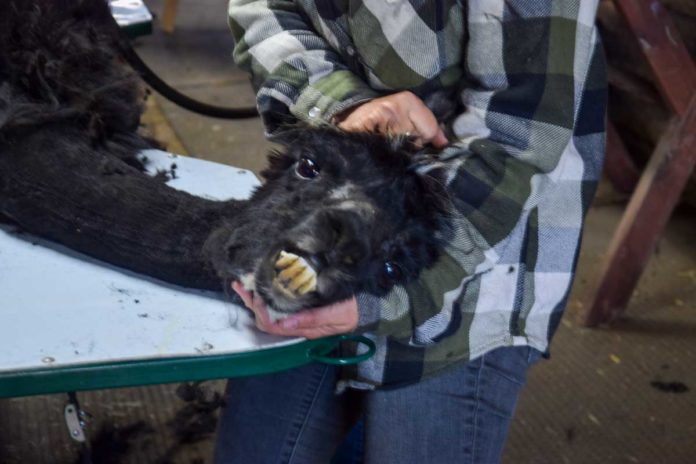CENTRAL MANITOULIN—A motion to regulate how residents who are not in rural/agricultural zones of the municipality can raise chickens was passed at the May 27 meeting of Central Manitoulin council, despite an impassioned last minute oration by Councillor Derek Stephens.
The motion, which was discussed at length at a previous council meeting, had been set aside after first reading to allow for community input.
“I am opposed to this bylaw,” said Councillor Stephens. “The principle it is based on is ridiculous.” He pointed out that “back in the day” most people raised chickens, horses and other animals on their properties before “the government took that away.”
Councillor Stephens placed much of the blame for restrictions on the Manitoulin Planning Board and voiced his opposition to this bylaw and others that placed restrictions on what property owners could do on their land.
“I am totally opposed to this bylaw,” he said.
The bylaw maintains that “a person may keep chickens in their backyard within the municipality in accordance with the provisions set out in this bylaw. The provisions in this bylaw shall only be applied to properties zoned either than agricultural or rural.”
According to the bylaw, “every person shall comply with the following requirements: no owner shall allow or permit their chicken to be at large; no person shall keep a rooster on a property smaller than two hectares and no person shall keep more than five chickens on a property.” Further, “any owner shall ensure all chicken coops be located only in the rear yard and fully enclose the chickens and prevent from escaping.”
“No person shall keep a chicken coop closer than five metres from the rear lot line of the property on which the chicken coop is located and five metres from any side lot line of the property on which the chicken coop is located.”
“Any owner shall ensure dead chickens are disposed of immediately and in any event, within 48 hours and no owner shall fail to have hygienic storage of and prompt removal of chicken feces.”
The bylaw goes on to state a person who keeps one or more hens must: provide each hen with at least 0.37m2 (four square feet) of coop floor area and 2.8.2 0.92m2 (10 square feet) of roofed outdoor enclosure; provide and maintain a floor of any combination of vegetated or bare earth in each outdoor enclosure; provide and maintain, in each coop, at least one perch, for each hen that is at least 15 cm long and one nest box; keep each hen in the enclosed area at all times; and to provide each hen with food, water, shelter, light, ventilation, veterinary care and opportunities for essential behaviours such as scratching, dustbathing and roosting, “all sufficient to maintain the hen in good health.”
In addition, the owner must “maintain each hen enclosure in good repair and sanitary condition and free from vermin and obnoxious smells and substances; construct and maintain each hen enclosure to prevent any rodent from harbouring underneath or within it or within its walls, and to prevent entrance by any other animal; keep a food container and water container in each coop; keep each coop locked from sunset to sunrise; remove leftover feed, trash and manure in a timely manner; store manure within a fully enclosed container and in quantities not exceeding one cubic metre (1m3) at a time; and remove all other manure not used for fertilizing forthwith; follow biosecurity procedures recommended by Canadian Food Inspection Agency; keep hens for personal use only and not sell eggs, manure, meat, or other products derived from hens; and finally, not to keep hens in a cage.”
The motion was moved by Councillor Al Tribinevicius and seconded by Councillor Rose Diebolt. Councillor Stephens was the sole vote against the motion. With that vote, and under a flurry of provisions, townies’s chickens can now come home to roost.





